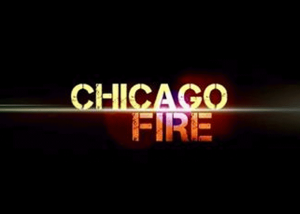Understanding the idea of split desire is a new story tool that suddenly surfaced for me in the work that I do with writers as a story/career consultant and writing instructor. With a well-written series trigger and dilemma, the pilot trigger adds a complication that creates a split desire. The complication isn’t the pilot pursuit; it’s an added element of conflict leading to create a split. This split creates the internal story that brings the audience back from week to week. It is this emotional pull and the internal conflict that makes us want to return. The internal pull is universal. It is what we identify with. We may not all understand what it is to be part of the external pursuit, as we haven’t all been spies, lawyers, entrepreneurs etc. However, when you add the complication of the internal struggle, we recognize the pull between personal and professional desires, and it resonates on a wider level. Understanding how to do this well will elevate your stories in a major way.
With THE GOOD WIFE, after losing her breadwinner, Peter, in the series arc, Alicia wants to bring security back to her family. It is because this happened that she returns to a law career that she abandoned thirteen years before. Part of the pilot trigger sequence is when her law school sweetheart, Will, gives her an opportunity to work in his law firm. This splits her desire. The question becomes; will Alicia remain loyal to Peter after he betrayed her or will she fall into the arms of an old love? This is the central conflict that drives the series. We returned every week in the first season to find out what was going to happen with this triangle.
With HOMELAND, in the series arc, Carrie hears from a prisoner who is about to be put to death that a prisoner of war has turned. Knowing this creates Carrie’s loyalty to her mission. Then, she discovers that an American prisoner of war is going to return. It is because the series trigger happened that this news has significance. This part of the pilot trigger creates a complication. Her split desire has to do with her loyalty toward the mission versus her falling in love with the prisoner of war, Brody. The season external question becomes; is Brody the prisoner of war who turned? The internal question becomes; will Carrie’s emotional connection get in the way of finding out the truth about Brody?
With SILICON VALLEY, the series trigger happens at the party that the boys from Erlich’s “incubator” attend. We learn that they are the “poorest” guys there. They are on the outside looking in. A huge deal was made at Hooli. The party is a celebration of this. This is what the “incubator” boys want to happen to one of them. The pilot trigger is when Erlich puts Richard on notice and tells him that if he doesn’t make Pied Piper work soon, he will have to vacate the house. This creates a complication to Richard’s series desire of wanting the professional dream but realizing that it means that he’s going to have to move past his internal hurdles that prevent him from standing up for himself and making things happen with Pied Piper.
With EPISODES, the series trigger is when Merc approaches Sean and Beverly, who have a happy marriage and a hit show in the UK, about doing a remake of their series in the US. The professional desire is to have a hit in the US. This conflicts with Beverly’s internal fear of whether their marriage can survive Hollywood. This fear is universal. It’s what connects the audience to this experience. The series starts by showing a flash forward to a consequence that makes us wonder how this split desire will play out. Will their show be a hit despite creative differences with the network and will their marriage survive?
Understanding how to create a strong split desire between the series arc and the complication added by the pilot arc is what will create longevity with your story concept. It is this conflict that compels people to come back. When we think about life, we are very often split between what we want professionally and our personal desires. So, this is a very universal thing. It resonates because we want to see how the characters are able to reconcile the differences between their split desires.


